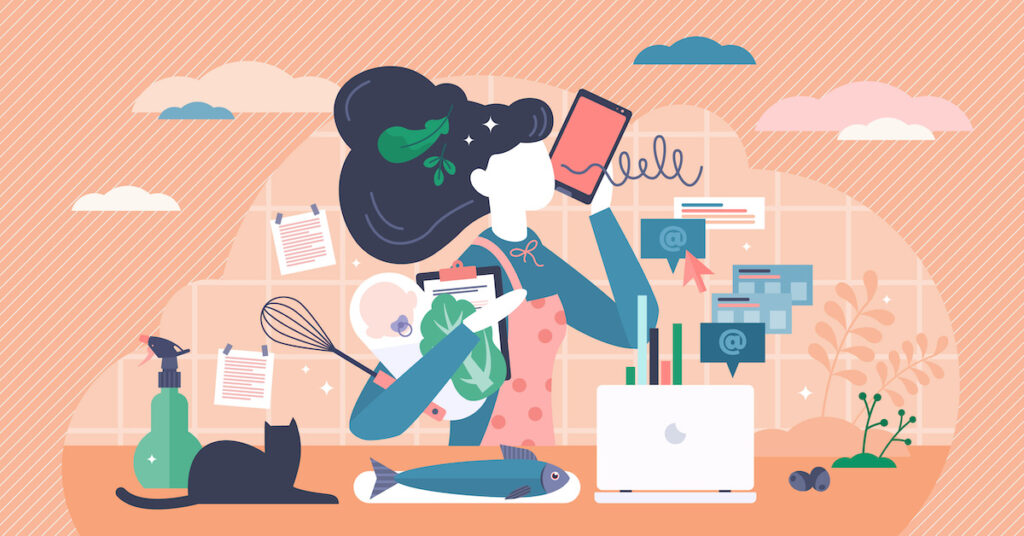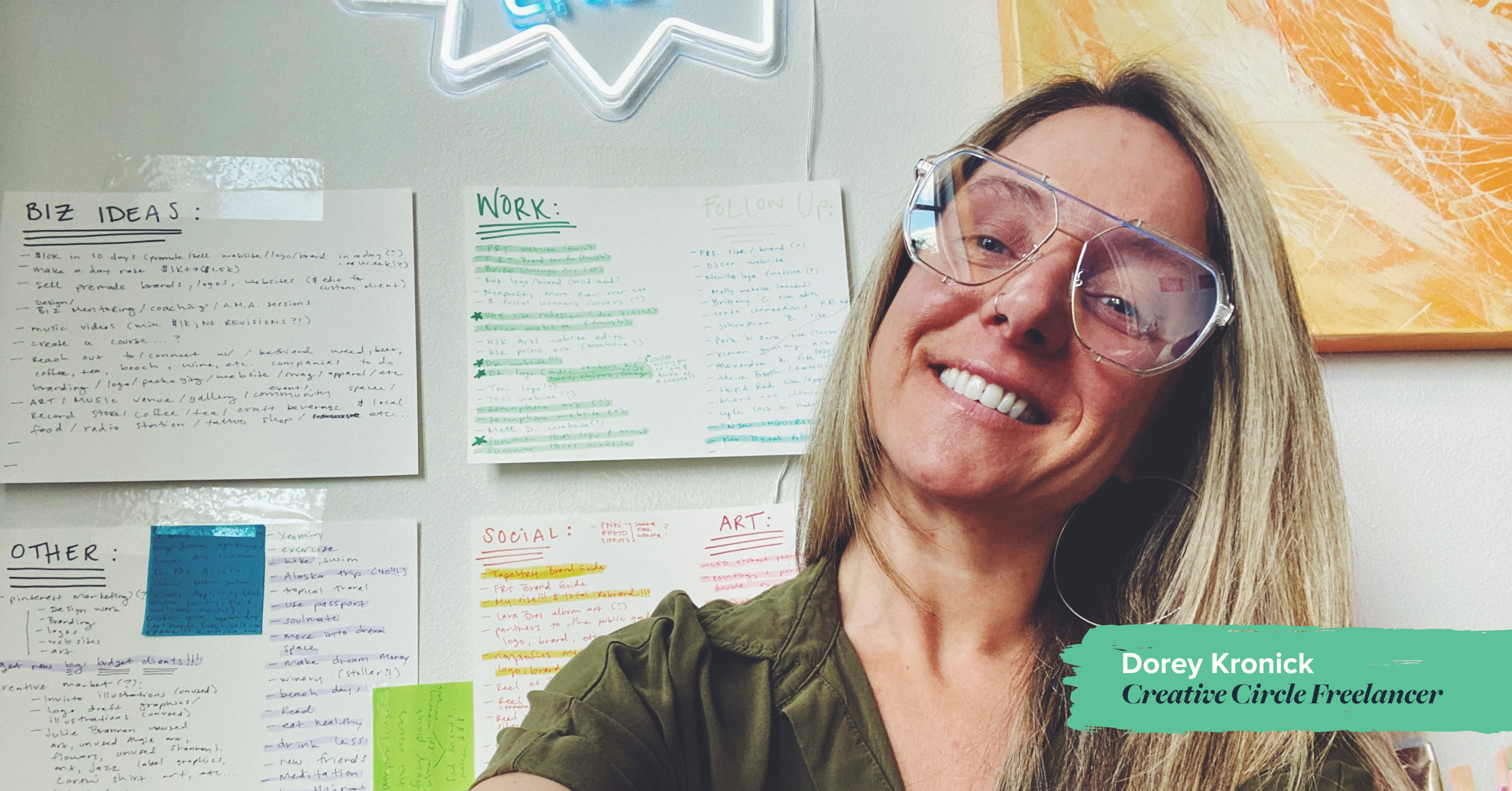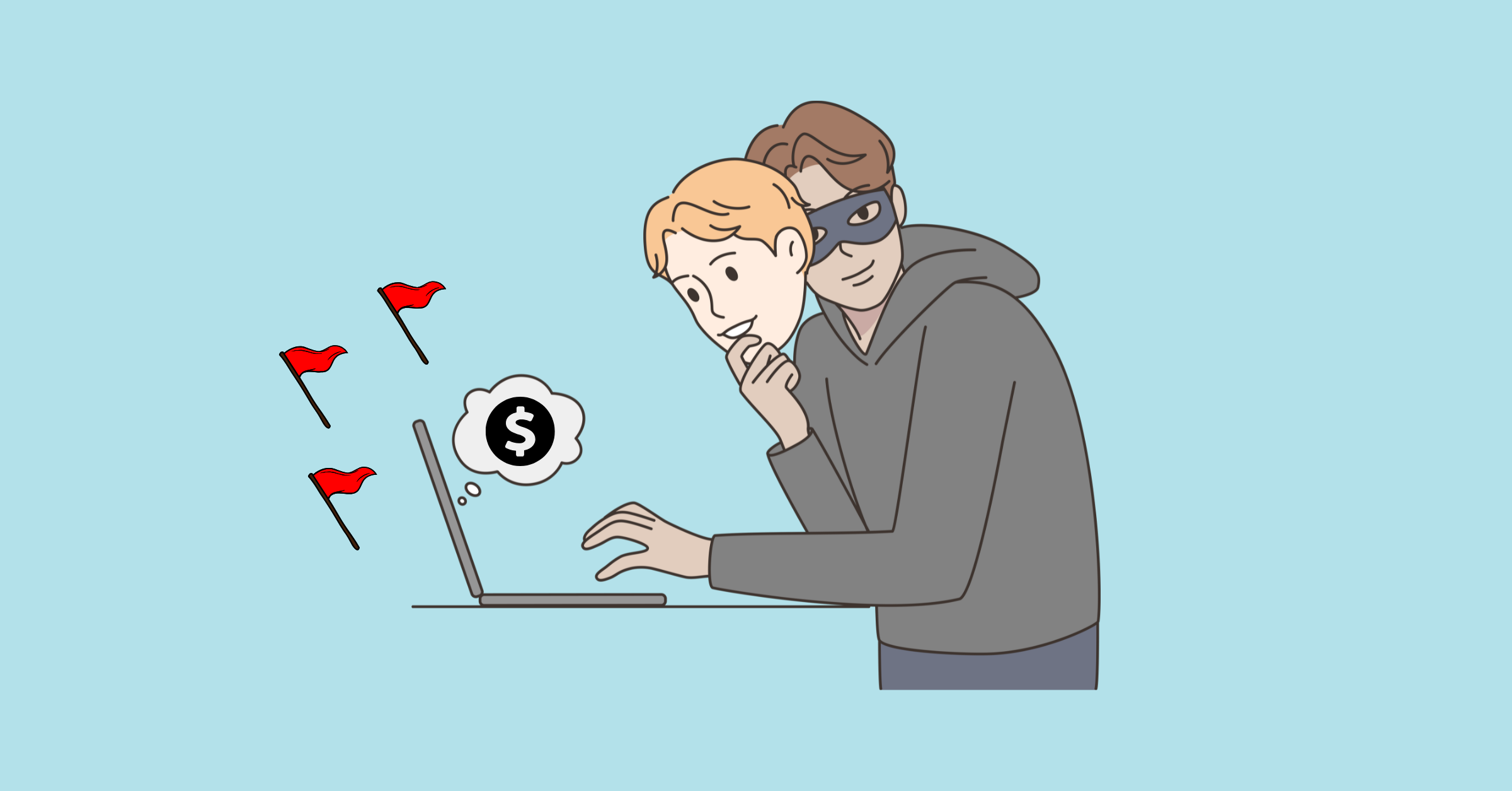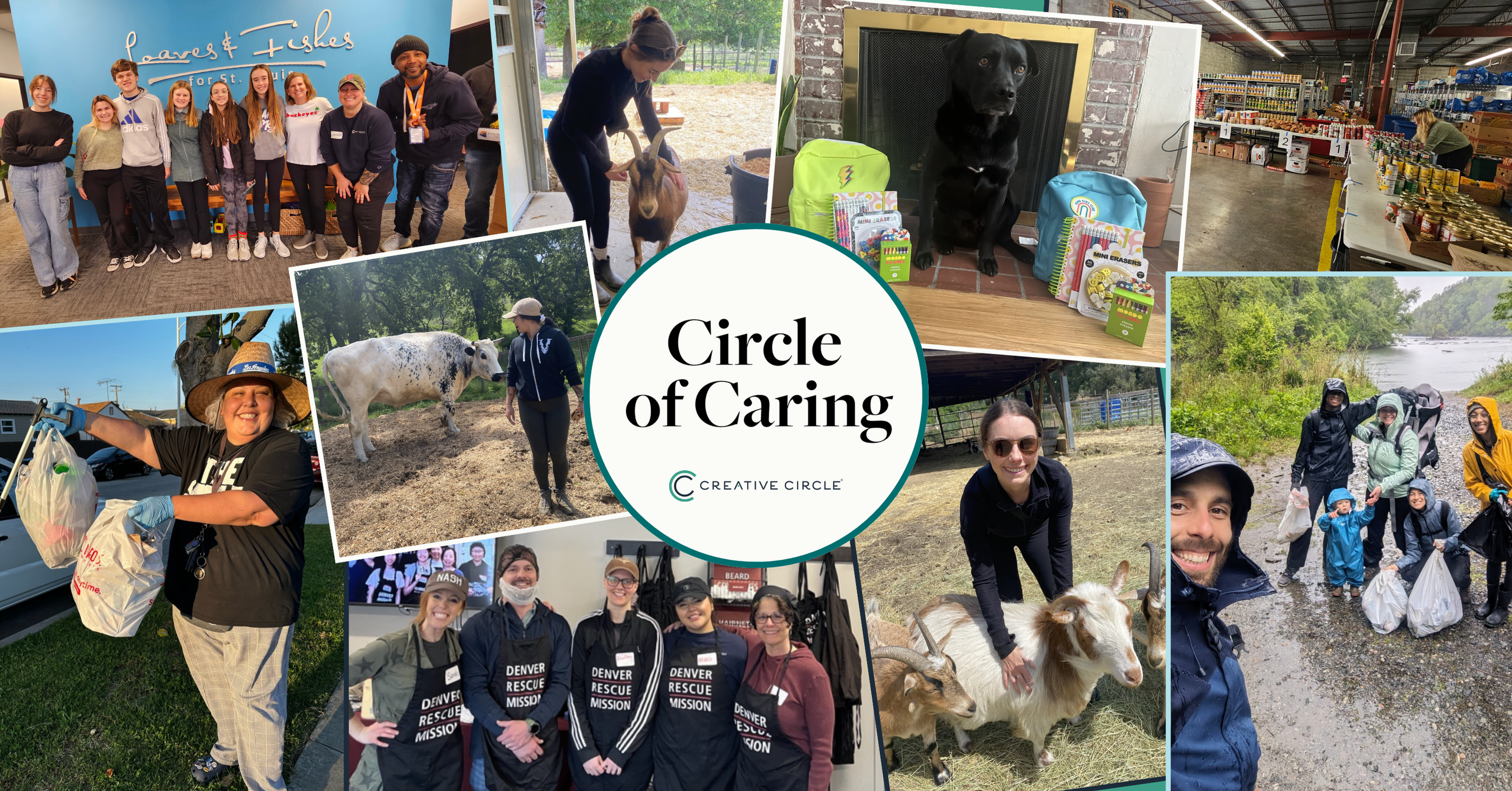I have spent the last roughly 15 years convinced that not only can I multitask, but I’m actually quite good at it. When I was in high school, I would listen to music while doing homework, much to my parents’ chagrin, and even though I insisted that music helped me concentrate, I often found myself getting carried away with singing along to what I was listening to. While studies have shown that listening to certain kinds of music can help if you’re doing certain tasks, I can confidently say from personal experience that listening to Jimmy Eat World does not help you focus on algebra homework (although I’m sure if “lofi hip hop radio – beats to relax/study to” was around in my day, I’m sure I would have been all over that).
But earlier this year, I sat down to watch TV and work on an assignment all while the group chat was popping off, and it occurred to me that I was getting nothing done. And that while I was trying to make the assignment a bit easier by doing other things, I was actually making things harder, juggling three screens and endless apps.
There’s an increasingly endless amount of distractions, and now that many of us have the option of working from home, it’s easier than ever to multitask. Whether it’s doing work while you have a TV show on in the back, switching between multiple gigs you’re juggling as a freelancer, or scrolling through Twitter while you’re a Zoom call, it feels like multitasking has become second nature to us in our screen-abundant world. Doing multiple things at once feels productive — in fact, it sometimes feels like if you’re not doing at least two things simultaneously, it’s something of a waste.
Here’s the thing: multitasking is not what it’s cracked up to be! The fact that we have these amazing computers that can run several programs at the same time does not mean that we can — or that we should. So here are some scientifically backed tips on why multitasking can actually be detrimental to our work-life balance.
Doing multiple things at once doesn’t make you more productive
Folks tend to think that multitasking is the foundation of productivity. You are technically doing more work, so doesn’t that mean you’re being more productive? Actually, no! According to the American Psychological Association, our human brains were not meant for intense multitasking like rubbing our belly and tapping our head or trying to do anything while talking to our mothers (the APA did not use these examples).
Multiple task-switching experiments found that switching between tasks ends up costing more time. Multitasking is part of the “executive control” processes, and according to research, can be broken down into two stages: “goal shifting” (or the decision to pursue a different task or goal) and “rule activation” (or the process of taking yourself out of the task and its procedure and adjusting to the procedure of your new test).
Multitasking can reduce your memory
Switching between multiple media can be really distracting, but a Stanford paper that looked at several studies indicated that it’s a little deeper than that. It found heavy duty multitasking “is associated with poor performance on cognitive memory tasks.” Multitasking can really impact your memory, which is probably why I can’t remember the plot of the shows I watch while I’m trying to do something else (sorry, Emily in Paris).
Chronic multitasking can impair your ability do one task
A 2009 study found that too much multitasking can actually be harmful to your ability to focus in general. The researcher, Clifford Nass, the Thomas M. Storke Professor at Stanford University told NPR:
We studied people who were chronic multitaskers, and even when we did not ask them to do anything close to the level of multitasking they were doing, their cognitive processes were impaired. So basically, they are worse at most of the kinds of thinking not only required for multitasking but what we generally think of as involving deep thought.
The idea that multitasking too much can impact your ability to really think critically for a sustained period of time is pretty scary, but it does make sense. Switching back and forth between tasks doesn’t really allow us to fully focus on anything, and focus is like exercise. You have to work on it. Nass also explained that chronic multitaskers are also attracted to irrelevant information because they’re “suckers for distraction,” which, wow drag me.
(I’d also like to take a second to point out that having to socially distance during the pandemic, and constantly being on our screens to do everything from work to socializing to buying groceries has forced us to be chronic multitaskers for over a year now. So some things are out of our hands, but it also underscores the need to get away from our screens!)
It’s not fair to you
So we’ve learned that multitasking doesn’t actually improve your productivity — and in fact can make things worse. But more than that, it’s not really fair to you, your time, or your energy. Even if multitasking worked the way we’d like it to, it’s important to let yourself be present in the things you do so you can regain your focus and actually be in the moment.
If you’re the type who feels the need to work while watching junk TV so you’re not just watching junk TV, maybe the question is less about feeling productive and more about why you feel the need to qualify your TV viewing habits. Either way, you’re watching it, so why not just enjoy it? Being fully present in the moment forces us to be accountable, but it also forces us to let an indulgence or guilty pleasure simply be that.
Still, there are some benefits to multitasking. According to Quartz, “Listening to music while you exercise makes you exercise more. Doodling during a boring lecture, or listening to instrumental music while you program computers or study helps you focus.” Even some task switching can help — putting yourself in a different headspace for a bit can help you work through the problem you return to.
How to cut down on chronic multitasking
The thing about multitasking is that it’s really hard to catch yourself doing it. Since sitting down to write this very blog, I’ve probably opened Twitter, Spotify, and lord knows what else countless times, only to remind myself that I’m in the middle of doing something. Setting small goals and doing a bit of planning can help you stay focused and on point.
Give yourself a break
When you’re tired, your brain is more likely to look for distractions, so let’s get preventative and make sure you’re in a good enough headspace to focus to begin with. Getting a good night’s sleep is a great start, and so is taking breaks.
Set a timer
Yes, like you’re in time-out. It’s called The 20 Minute Rule, and it’s pretty self-explanatory. Set a timer for 20 minutes, and completely focus on one task. No texts, no emails, no TV shows, just the task at hand. When the timer is up, take another 20 to do something else, whether it’s another task or watching an episode of the show you didn’t watch. When that 20 minutes is up, return to the original task at hand with no other distractions.
Declutter
Part of focusing is removing distractions whether it’s the pile of papers you have to get around to taking care of or the crushing weight of all those unread emails. If it’s possible, clear your work area as much as possible. To me, decluttering can also mean clearing your inbox or even turning off notifications so you can have a completely unfettered time and headspace to work in.
Plan Ahead
Multitasking typically happens when you have to get a lot done in a short amount of time, so like getting a good rest, try to prevent the need to multitask by staying ahead and managing your project effectively and according to your timeline.
Multitasking may make us feel like we’re working smarter and not harder, but according to science, the opposite may more so be the case. The world is full of distractions, making it that much harder to stay focused on one task. But not only will avoiding multitasking allow us to save time and energy, it will help to hold ourselves accountable and let us simply be present in the moment.
About the author.
Sam Mani writes about work, creativity, wellness, and equity — when she’s not cooking, binging television, or annoying her cat.




